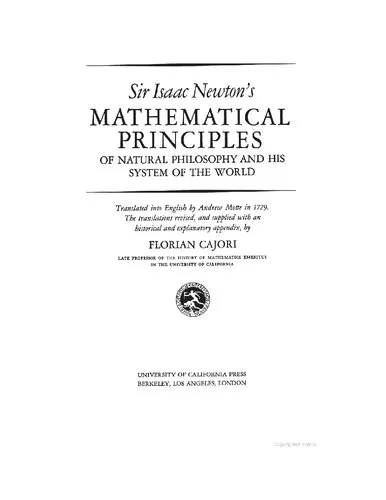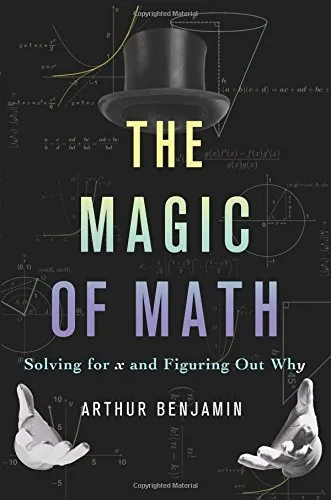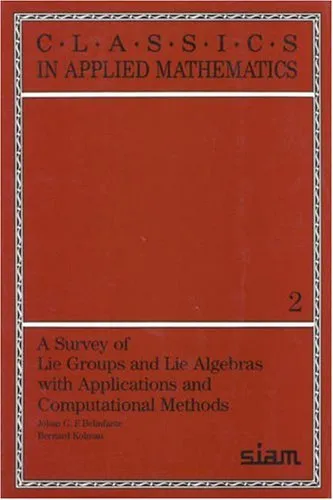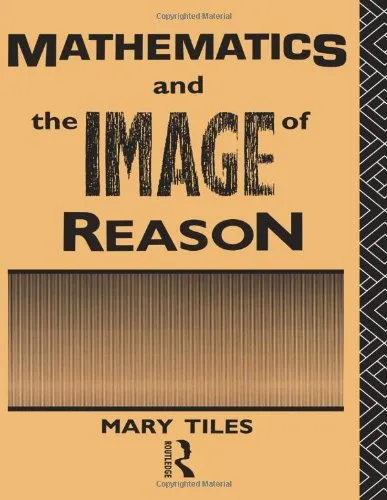The Principles of Mathematics
4.5
Reviews from our users

You Can Ask your questions from this book's AI after Login
Each download or ask from book AI costs 2 points. To earn more free points, please visit the Points Guide Page and complete some valuable actions.Related Refrences:
Introduction to 'The Principles of Mathematics'
‘The Principles of Mathematics’ by Bertrand Russell is a groundbreaking intellectual work first published in 1903. It seeks to provide a comprehensive foundation for mathematics by meticulously exploring its underlying concepts, axioms, and logical structures. Russell's seminal work not only shaped the field of mathematical logic but also profoundly influenced philosophy, laying the groundwork for the emergence of analytic philosophy in the twentieth century.
This book is a philosophical investigation that combines rigorous analysis with clarity, as Russell examines the assumptions and logical principles underpinning mathematical theories. Avoiding abstraction for its own sake, 'The Principles of Mathematics' demonstrates Russell's aim to show that mathematics is grounded in logic, supporting this argument with precise reasoning and well-thought-out propositions. Over a century later, this book remains an essential reference for scholars of mathematics, philosophy, and logic alike.
Detailed Summary of the Book
Bertrand Russell begins his treatise by discussing the philosophical basis of mathematics. He challenges prevailing perceptions and questions whether mathematical truths are empirical observations or universal abstractions derived through logic. The book is divided into two main areas of focus: Pure Mathematics and the logical underpinnings of mathematical concepts.
Russell asserts in the book's key thesis that mathematics is essentially a branch of logic. He develops this idea with rigorous analysis, addressing numerals, infinite series, sets, and classes, all while attempting to resolve foundational paradoxes that had perplexed mathematicians of his time. The famous paradox now bearing the name “Russell’s Paradox” emerges from this exploration, significantly influencing modern mathematics and logic.
He proceeds to scrutinize topics such as number theory, the nature of infinity, propositions, and relations. By delving into these components, Russell intends to establish a unified structure where mathematics rests solely upon logical premisses. This ambitious work also critiques several earlier philosophies of mathematics, including those of Kant, Leibniz, and Peano, setting itself apart as a bold and forward-thinking contribution to mathematical philosophy.
While the book is comprehensive and highly detailed, it also confronts key philosophical questions: What is the nature of mathematical truths? How does one reconcile intuition with formal logic? 'The Principles of Mathematics' lays the foundation for Russell's later work with Alfred North Whitehead, culminating in Principia Mathematica, which extended and formalized many of the ideas advanced in this volume.
Key Takeaways
- The book argues that mathematics is reducible to pure logic, forming the foundation of the entire discipline.
- It introduces 'Russell's Paradox,' which complicates the notion of sets containing themselves and reshapes our understanding of set theory.
- Russell emphasizes the importance of precision in definitions, utilizing symbolic logic to remove ambiguity in mathematical reasoning.
- It critiques existing philosophies of mathematics, such as those offered by Kant and empiricists, challenging pre-existing notions of mathematical intuition.
- The work serves as a precursor to major developments in analytic philosophy and formal logic, influencing fields beyond mathematics.
Famous Quotes from the Book
“The certainty of mathematics is to be sought in the certainty of logic.”
“Mathematics, rightly viewed, possesses not only truth but supreme beauty.”
“One of the chief triumphs of modern mathematics consists in having discovered what mathematics really is.”
Why This Book Matters
'The Principles of Mathematics' is more than just a book about mathematics; it is a profound exposition on the nature of knowledge, truth, and reasoning. Bertrand Russell meticulously explores the logical structures underlying mathematical principles, offering a novel perspective that challenges traditional views. This work is a cornerstone in both the philosophy of mathematics and modern logic, as it provides a blueprint for understanding mathematics as a rigorous, logical system.
The significance of this book lies in its lasting influence. It contributed to the formalization of mathematics, heralding new frameworks such as set theory and symbolic logic. Furthermore, the ideas in this book inspired later generations of philosophers, logicians, and mathematicians, paving the way for major discoveries in computer science, artificial intelligence, and formal systems.
Even today, Russell's insights resonate strongly, reminding us of the importance of logic and precision not only in mathematics but in all intellectual endeavors. 'The Principles of Mathematics' remains an essential work for those pursuing foundational knowledge in mathematics or philosophy, offering timeless lessons that continue to shape the way we see and understand the universe.
Free Direct Download
You Can Download this book after Login
Accessing books through legal platforms and public libraries not only supports the rights of authors and publishers but also contributes to the sustainability of reading culture. Before downloading, please take a moment to consider these options.
Find this book on other platforms:
WorldCat helps you find books in libraries worldwide.
See ratings, reviews, and discussions on Goodreads.
Find and buy rare or used books on AbeBooks.
1512
بازدید4.5
امتیاز0
نظر98%
رضایتReviews:
4.5
Based on 0 users review
Questions & Answers
Ask questions about this book or help others by answering
No questions yet. Be the first to ask!













